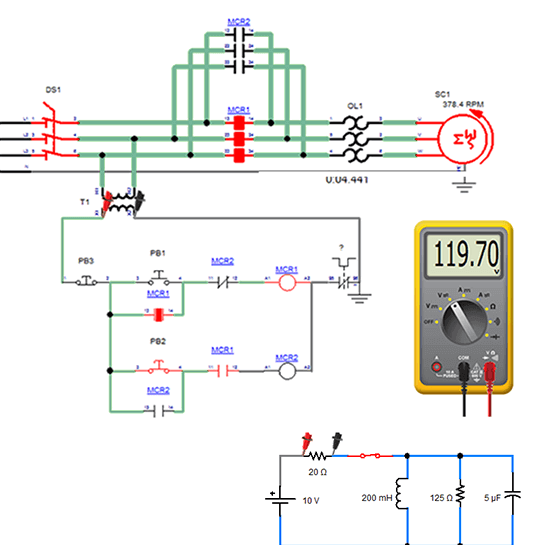

The experiment was conducted in two steps: (i) two MLE solutions were created to a public high school.
#COMPARTIR LICENCIAS EN AUTOMATION STUDIO 6.1 SOFTWARE#
In addition, a test with users (teachers and students) was conducted to verify which produced software was considered more interesting and if their needs were met.

In this current paper, we report an experiment conducted in a high school in order to evaluate the applicability of the process in a real environment, and also to verify if the proposed method differs from the traditional process for software requirements elicitation. Also in, we report an application of the process in a pilot experiment. Thus, in, a requirements elicitation and specification process based on Design Thinking (DT) was proposed to develop MLEs. To achieve this purpose, requirements engineering processes for MLE need to include activities that use creativity techniques in order to conceive solutions that really modify and improve the teaching and learning process. Īlso, MLEs actually need to impact the teaching and learning environment. However, MLEs also inherit the problems of traditional software requirements elicitation. point out that the concept of MLE or m-learning (mobile learning) have attracted interest from researchers by providing flexibility and organizational capacity, awakening the sense of responsibility, supporting and encouraging teaching practices through a pedagogical perspective. This potential can favor the development of educational applications or mobile learning environments (MLE). The mobile computing area has great exploration potential in different segments due to the large number and diversity of mobile devices. Received: Revised: Accepted: 1 Introduction Portuguese Keywords: Mobile Learning, Ambiente Virtual De Aprendizagem Móvel, Desing Thinking, Engenharia De Requisitos Keywords: Mobile Learning, Mobile Learning Environments, Design Thinking, Requirements Engineering. Um experimento foi realizado para avaliar se o processo proposto contrinui para criar AVAMs que apresentam características diferenciadas e interessantes quando comparadas a soluções existentes para um problema específico. Este processo se baseia nos conceitos do processo do Design Thinking que fornece uma metodologia para elicitar as necessidades dos clientes, produzindo protótipos simples que eventualmente convergem para soluções inovadoras. Nesse contexto, o presente artigo apresenta um processo de elicitação e documentação de requisitos para ambientes virtuais de aprendizagem móvel. Processos de Engenharia de Requisitos precisam incluir atividades que provoquem a criatividade nos stakeholders para criar AVAMs que de fato modifiquem e melhorem o processo de ensino e aprendizagem. O desenvolvimento de software para dispositivos móveis é essencial para a efetiva implantação do m-learning ou ambiente virtual de aprendizagem móvel (AVAM). Mobile Learning (m-learning) é o campo de pesquisa que busca analisar como os dispositivos móveis podem colaborar para a aprendizagem. An experiment was conducted to evaluate if the proposed process contributes to create MLEs that present distinctive and interesting characteristics when compared to existing solutions for a specific problem. This process is based on the concepts of the Design Thinking process that provides a methodology to elicit customer needs, producing simple prototypes that eventually converge to innovative solutions. In this context, this paper presents a process for requirements elicitation and documentation of mobile learning environments. Requirements Engineering processes need to include activities that provoke creativity in the stakeholders to conceive MLEs that actually modify and improve the teaching and learning process. The development of software for mobile devices to support learning is essential for an effective implementation of m-learning or mobile learning environments (MLE). An Experimental Study of the Use of Design Thinking as a Requirements Elicitation Approach for Mobile Learning Environmentsįaculdade de Ciências Aplicadas e Sociais de Petrolina (FACAPE), Petrolina, PE, Brazil, 56328-903Ĭentro de Informática, Universidade Federal de Pernambuco (CIn-UFPE), Recife, PE, Brazil, SilvaĬentro de Informática, Universidade Federal de Pernambuco (CIn-UFPE), Recife, PE, Brazil, learning (m-learning) is a research field that aims to analyze how mobile devices can contribute to learning.


 0 kommentar(er)
0 kommentar(er)
